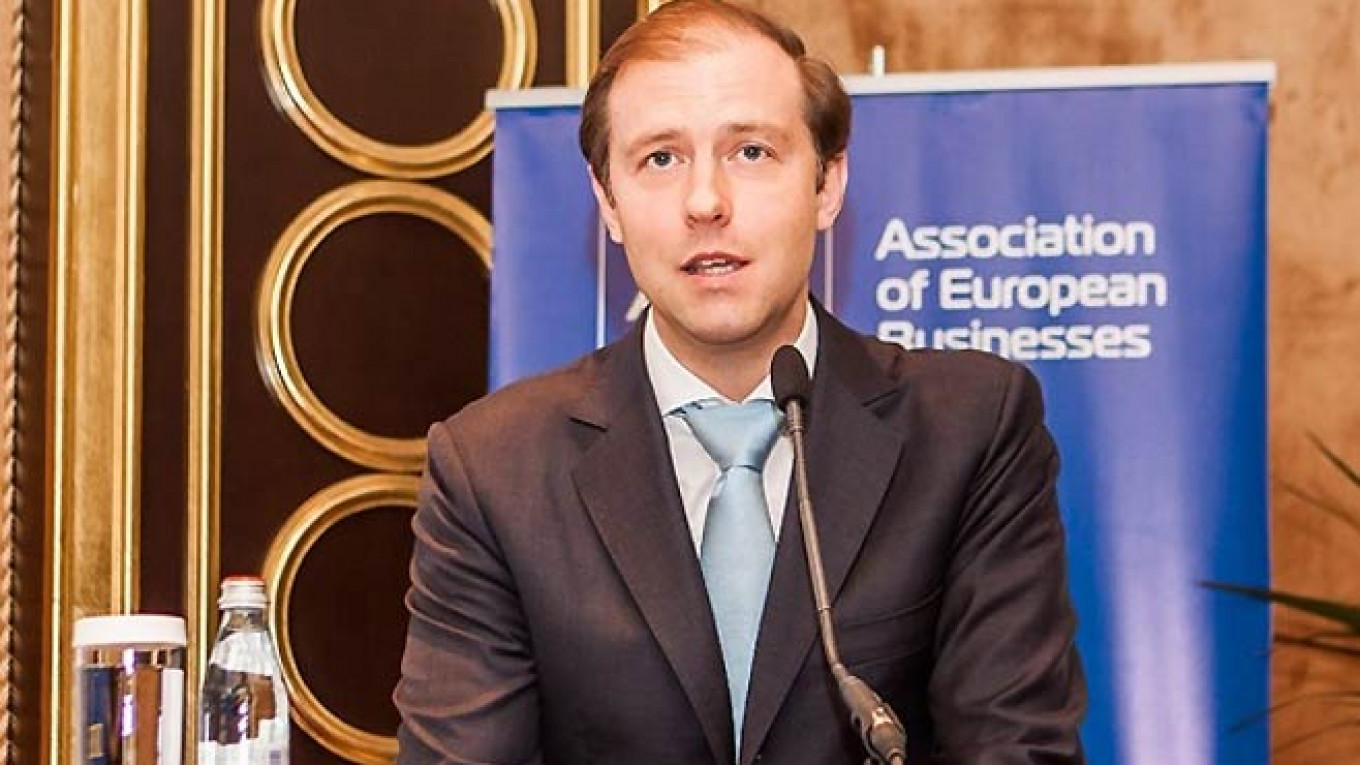Industry and Trade Minister Denis Manturov attempted to persuade European businessmen on Wednesday that they are still welcome to invest in the country and continue localizing production amid possible economic sanctions.
Some industry executives, however, were skeptical that plans advanced by the government would be beneficial for their business.
Russia will keep on following WTO requirements and will further open its market, Manturov said, addressing the Association of European Businesses, which unites more than 650 European companies, engaged in business activities with the country.
"Russia has spent 19 years on complicated negotiations to finally join the World Trade Organization, reducing import duties on more than 5,000 positions by September 2013," Manturov said. "Yet, less than two years after we have been accepted into the WTO, we are again being forced into isolation."
The minister said that Russia is ready to improve its integration with Europe and will further decrease import duties this September on almost half of all product types.
European businesses do not support economic sanctions against Russia, their representatives said.
"We will speak to the European Union government against the sanctions," said Philippe Pegorier, the head of Alstom Russia. The situation is not easy, he said, but crises come and go and are manageable.
Russia is Europe's third trade partner after the U.S. and China, and for Russia the EU accounts for half of its trade with foreign countries.
As foreign companies are invited to invest in Russia, they are expected to localize production as much as possible, something authorities have stressed is part of the government's industrial strategy. But industry executives said a fully local production for an international producer is not always profitable.
Companies may experience difficulties finding an acceptable local supplier for their plants because of an underdeveloped industrial base in Russia, several executives said.
"Some components can be produced in Germany, shipped to Russia and still be cheaper than locally made analogues, which are also frequently of a lower quality," a source at a leading international construction machinery producer said, not disclosing his name because he was not authorized to speak to the media.
Other problems come from having to set up local production when there is no mass market yet, the executives said. For instance, the market for automobiles, whose production is highly localized, is much different from heavy machinery or alternative power equipment.
"When the product just enters the market, frequently the sales volumes are not high enough to support economically viable [local] manufacturing," said Michael Akim, the head of strategic development at the Russian division of ABB, an international automation and power technology company.
Setting up a fully local production in this case would result in spiraling costs both for the company, and, eventually, for the consumer, he said.
At the same time ABB confirmed its plans to open its sixth production facility in Russia this week in Lipetsk, a Special Economic Zone south of Moscow.
Contact the author at a.panin@imedia.ru
A Message from The Moscow Times:
Dear readers,
We are facing unprecedented challenges. Russia's Prosecutor General's Office has designated The Moscow Times as an "undesirable" organization, criminalizing our work and putting our staff at risk of prosecution. This follows our earlier unjust labeling as a "foreign agent."
These actions are direct attempts to silence independent journalism in Russia. The authorities claim our work "discredits the decisions of the Russian leadership." We see things differently: we strive to provide accurate, unbiased reporting on Russia.
We, the journalists of The Moscow Times, refuse to be silenced. But to continue our work, we need your help.
Your support, no matter how small, makes a world of difference. If you can, please support us monthly starting from just $2. It's quick to set up, and every contribution makes a significant impact.
By supporting The Moscow Times, you're defending open, independent journalism in the face of repression. Thank you for standing with us.
Remind me later.






